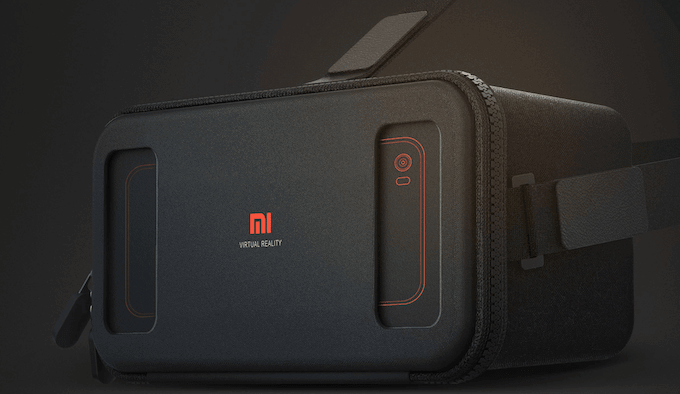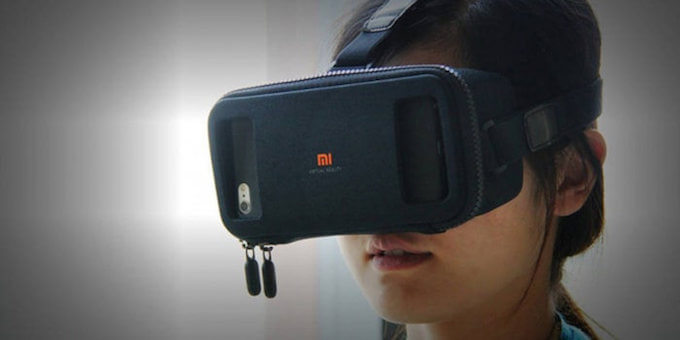Currently, the most powerful manufacturers in the world are busy showcasing their innovations in the VR domain. It has become a strategy to differentiate their products from those of its rivals.
Samsung and Google (DayDream VR) , are some examples of how this technology is being worked on. In 2016 itself VR has put on weight so far with releases from mega manufacturers. Since these virtual relality headsets have several significant limitations the market is wide open for new entrants.
On the other hand, games like Pokemon Go, have shown that the future of the devices we use every day. The rest of the year has been about consolidation of these elements variety of mobile apps. There still could be several surprises coming our way in the remaining part of the year.
Chinese companies have taken a major leap in innovation and are constantly improving the quality of their products. The creation of devices aimed at high – end cameras combine features such as a high – resolution, ultra – resistant screens or processors reaching breakneck speeds. To add, in some cases the inclusion of augmented reality is also being carried out. On these lines Xiaomi has presented the Xiaomi Mi VR Play, a device targeting the low cost VR Headsets market.
What is Xiaomi Mi VR Play?
Similar to the Google Cardboard, one of the most striking aspects of Xiaomi Mi VR Play is the materials used for it. In the Mi VR we find a mix between the plastic of the front cover, rubber on the straps (to fit) and lycra to cover the whole body. All these provide a greater sense of lightness as this VR Headset weighs just around 200 grams. Interaction with inserted device is achieved through a button located at the top. Through this you can access the available menus and enter 3D visualization.
Personalization
Though the physical characteristics of the Mi VR Play, are one of the main elements that Xiaomi aims to place well. It is also trying to reach a greater number of consumers. The Chinese company has incorporated a series of cover patterns which suits anyone. 
What devices are supported?
Virtual reality is not suitable for all devices in the market today. This could be a one of the key barrier that is limiting their consolidation. Secondly, the unstable applications that do not offer an entirely successful experience. Finally, the very dimensions of the devices that should fit the glasses made either by Google, Samsung or any of the other companies that are already incorporating this technology. In the case of Mi VR , the arc of compatible models will be among those with panels from 4.7 to the 5.7 inches.
Features and Specifications
These headsets have an elastic band and hence is comfortable to wear and fits perfectly. The compartment where mobile is to be kept has a zipper. You can close it and keep your phone more secure while moving your head freely. This zipper also helps the mobile to stay fixed reducing movement and improving the user experience.
Xiaomi Mi VR Play lenses are made of ABS resin and are spherical. There’s absolutely no plastic means that it is also better for the environment. The design is also very comfortable and elegant. Like already mentioned these VR glasses are suitable for mobile screens between 4.7 and 5.7 inches.
| Model | Xiaomi Mi VR Play |
|---|---|
| Material | Spherical Resin and ABS |
| Smaller Screen | 4.7 inches (138.1 mm x 67.0 mm) |
| Larger Screen | 5.7 inches (158.1 mm x 77.8 mm) |
| Compatible models | Xiaomi MI5; Mi5 Pro Xiaomi; Xiaomi redmi Note 4; Redmi Pro Xiaomi; Xiaomi redmi Note 3; Note 3 Pro redmi Xiaomi; Xiaomi Mi 4S; 3S redmi Xiaomi; Xiaomi redmi 3 Pro; Xiaomi redmi 3; Xiaomi Mi 4C etc |
| Product size | 201 x 107 x 91 mm / 8.65 x 5.11 x 4.21 inches |
| Weight | 208g |
Price
So far, the record for most affordable glasses was held by Google with its Cardboard (at around 15 dollars). However Xiaomi Mi VR Play is priced at 20 dollars and could be the Raspberry Pi of VR Headsets. Similar to the Raspberry Pi foundation, this Chinese company is targeting maximum consumer reach.
And rightly so it has generated much excitement among both users and specialized portals worldwide. The lower price compared to other alternatives such as Samsung, can arouse suspicion, if we consider that the profit from its sale would not provide substantial revenue to the company.
Challenges
As already mentioned, the options available within supported VR products, whether games or apps are slim. To try to solve this problem, Xiaomi aims to create a catalog of additional content. A significant portion of this content would be paid content and that’s how the company could be planning to earn profits from the sale of the glasses. On the other hand, in the future it increases the ability of customization by launching another series of VR headsets focusing on each specific audience elements.
Although the price is one of the tricks that can make the Mi VR an interesting element in the field of virtual reality. It can also help consumer outreach. The truth is that time will tell if this strategy will be a success or not. As mentioned above, there are several challenges around this technology that require time to be solved.
Also Read: 10 Incredible Things Virtual Reality Can Be Used For



Reading your website gave me a lot of interesting
information. Thank you